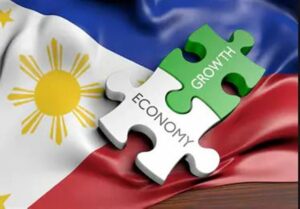Nigeria recorded a lower economic growth in the first quarter of the year (Q1’2020), as the Gross Domestic Product (GDP) growth rate dropped to 1.87 percent, during the quarter, reflecting the impact of the COVID-19 pandemic on the economic activities across the country.
This 1.87 percent GDP growth recorded in Q1’2020, the lowest quarterly GDP growth rate since third quarter of 2018, represents decline of 23 basis points when compared with the 2.55 percent GDP growth rate recorded in the fourth quarter of last year (Q4’2020). It also represents 68 basis points when compared with the 2.10 percent GDP growth rate recorded in the first quarter of last year (Q1’2019).
The Nigeria Bureau of Statistics (NBS) disclosed this in the Nigerian Gross Domestic Product Report (Q1 2020).
According to the NBS, the GDP growth was driven mainly by the Oil sector which grew by 5.06 percent during the quarter, though lower than the growth recorded in Q1’2019 and Q4’2019.
The report stated: “In the first quarter of 2020, Nigeria’s Gross Domestic Product (GDP) grew by 1.87 percent(year-on-year) in real terms. This performance was recorded against the backdrop of significant global disruptions resulting from the COVID-19 public health crisis, a sharp fall in oil prices and restricted international trade. The performance recorded in Q1 2020 represents a drop of –0.23 percent points compared to Q1 2019 and –0.68 percent points compared to Q4 2019, reflecting the earliest effects of the disruption, particularly on the non-oil economy. Quarter on quarter, real GDP growth was –14.27 percent compared to 5.59 percent recorded in the preceding quarter.
“In the quarter under review, aggregate GDP stood at N35.647 trillion in nominal terms. This performance was higher when compared to the first quarter of 2019 which recorded N31.824 trillion, with a nominal growth rate of 12.01 percent year on year. Relative to the first quarter of 2019, the nominal growth rate was higher by 0.11 percent points but lower than the proceeding quarter by –0.32 percent points. For better clarity, the Nigerian economy has been classified broadly into the oil and non-oil sector”
Oil sector GDP
The report further disclosed that: “The oil sector recorded a real growth rate of 5.06 percent (year-on-year) in Q1 2020 indicating an increase of 6.51 percent points relative to the rate recorded in the corresponding quarter of 2019. However, growth decreased by –1.30 percent points when compared to Q4 2019 which was 6.36 percent. Quarter-on-quarter, the oil sector recorded a growth rate of 11.30 percent in Q1 2020. The Oil sector contributed 9.50 percent to aggregate real GDP in Q1 2020, up from figures recorded in the corresponding period of 2019 and the preceding quarter, as the share of the non-oil economy declined.”
Non-oil sector GDP
According to the NBS: “The non-oil sector grew by 1.55 percent in real terms during the reference quarter (Q1 2020). This was slower by –0.93 percent points compared to the rate recorded during the same quarter of 2019, and –0.72 percent points slower than the fourth quarter of 2019. The non-oil sector was driven mainly by Information and Communication (Telecommunications), Financial and Insurance (Financial Institutions), Agriculture (Crop Production), Mining and Quarrying (Crude Petroleum & Natural Gas), and Construction. In real terms, the Non-Oil sector contributed 90.50 percent to the nation’s GDP in the first quarter of 2020, less than its share in the first quarter of 2019 which was 90.78 percent and the fourth quarter of 2019 recorded as 92.68 percent. Activities that witnessed weaker performance relative to Q1 2019 include Quarrying, Road transport, Accommodation and Food services as well as real estate.”


Comments
Post a Comment